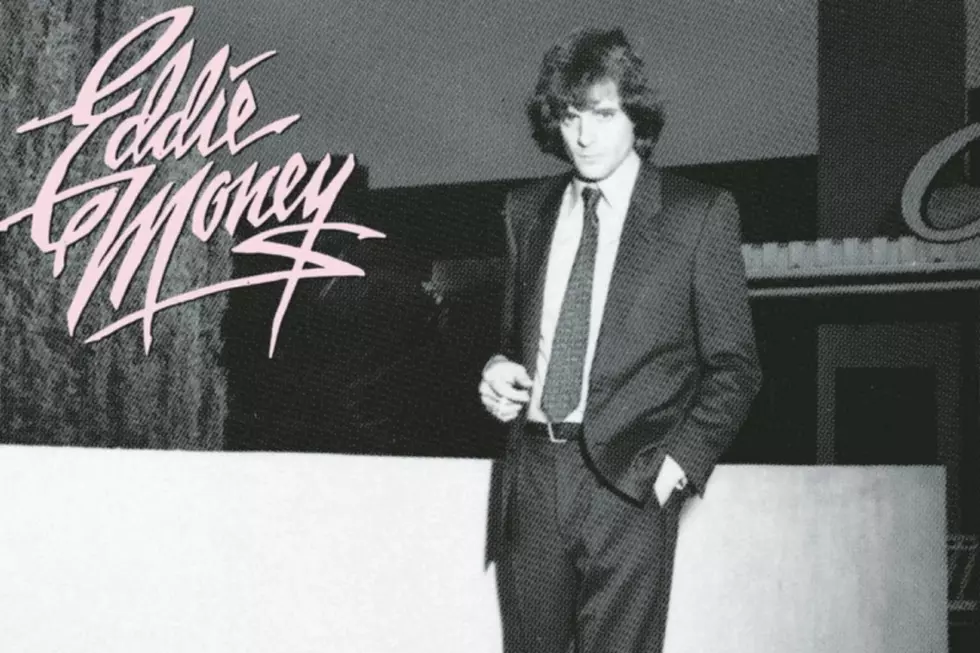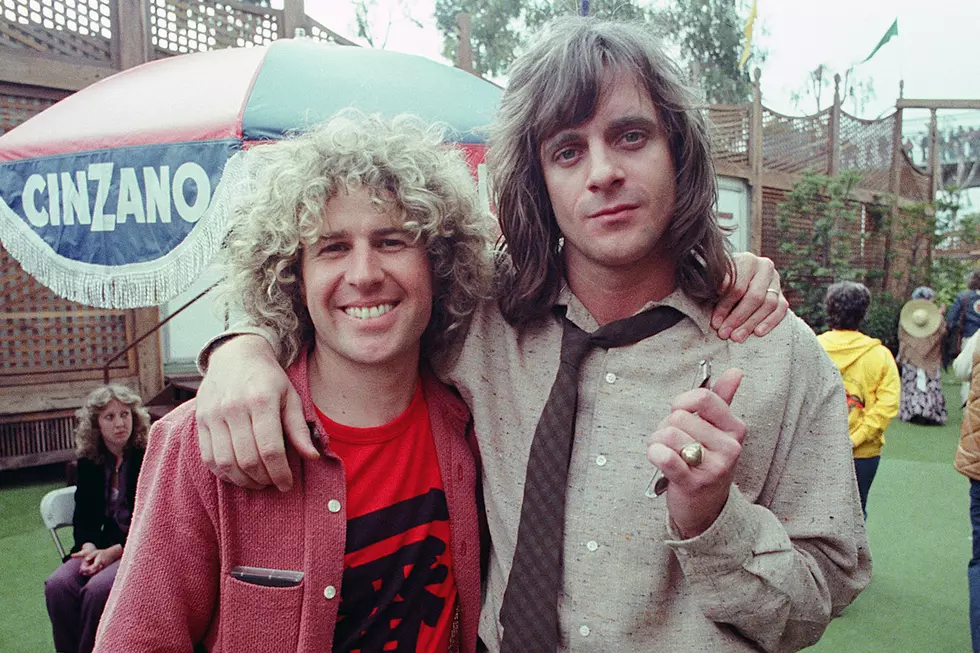
How Eddie Money Rebounded With ‘No Control’
After three straight Top 40 albums, the late Eddie Money was riding high in the early '80s — in more ways than one. In fact, a hard-partying lifestyle nearly got him killed during the promotional cycle for his third album, 1980's Playing for Keeps.
"Completely overworked, drink, battle fatigue. I went out and bought a case and got real drunk and snorted some fentanyl, which is like a heroin substitute, which I thought was coke — which I don't advocate anymore," Money bluntly cautioned after the ordeal. "Almost killed myself."
Money's self-described brush with death wasn't rock-star hyperbole. The damage to his internal organs included a major problem with his sciatic nerve, which severely restricted his mobility for an extended period. To his (likely life-saving) credit, the incident served as a major wake-up call for Money, who decided to put the experience into the songwriting for his next LP.
But getting back into the studio was easier said than done. As Money later recalled, he "was in such bad shape that I had to use a walker to go from my bedroom into the music room to write." It would take a little less than two years for Money to make his way back to record stores with his first post-overdose album, 1982's No Control.
"I got into a lot of the pitfalls that people run into in the business, and I seemed to fall into them harder than most," he subsequently recalled. "Lots of powder, lots of barbiturates. I was drinking at the same time. And then all of a sudden I’m in a coma after that overdose, and I nearly didn’t make it. Put me out of commission for a long time, man — I couldn’t walk for a year — but then [producer] Tom Dowd got me back in the studio and we did the No Control album, which was all about what it was like to go through that."
Released on June 11, 1982, No Control found Money with a lot at stake in a number of ways. Not only was he fighting his way back from severe trauma, he'd suffered something of a sales slide with Playing for Keeps, which marked his first release to fail to send any singles into the Top 40 despite a pronounced effort to broaden Money's base with radio-friendly pop tracks. Personally and professionally, his back was against the wall — and he delivered with one of his stronger sets.
Watch Eddie Money Perform 'Shakin"
In fact, while No Control rebounded Money's album sales, peaking at No. 20 and eventually going platinum, it reaffirmed his rock radio bona fides; lead-off single "Think I'm in Love" topped the rock charts while breaking the pop Top 20, and the set's second release, "Shakin'," also went to the rock Top 10. While it would be inaccurate to call it a concept album — and as was often the case, Money worked with a raft of co-writers on the record — he credited his emotional shock to the system with helping the album strike a chord.
"I put a lot of energy and effort into No Control. It was kinda like the 'You Can't Keep a Good Man Down' syndrome. It's almost like Richard Gere in An Officer and a Gentleman; he couldn't get thrown out 'cause he had nowhere else to go," quipped Money at the time. "I mean, that's how I was. I had to come back because that's what I did for a living. It was a very sincere and strong album because it was very much from the heart."
No Control added a triumphant note to Money's personal and professional lives, but his ups and downs were far from over. He'd suffer another commercial setback with Where's the Party? the following year before making yet another comeback with 1986's Can't Hold Back — and then by the early '90s, he'd parted ways with his longtime label Columbia.
He continued to tour and record, but ultimately resigned himself to heritage-artist status, memorably joking that "once they buy your greatest hits, they don't give a shit if you live or die."
Still, looking back over his early catalog, Money repeatedly pointed to his fourth album as a source of particular pride.
"I think the quintessential Eddie Money album is No Control," he argued years later. "I wanted to write a record that would let kids know they didn’t have to get drunk or take drugs and get high. You can go out there and wreck a car and kill yourself or snort something that can kill you. The No Control album is like, 'you don’t want this to happen to you, look what happened to me.'"
Rockers With Hidden Talents
More From Ultimate Classic Rock









